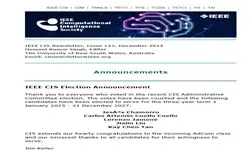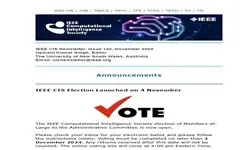-
Members: FreeCIS
IEEE Members: Free
Non-members: FreeLength: 00:56:44
24 Jul 2016
�Nature is pleased with simplicity. And nature is no dummy� (Isaac Newton); �... I ask many questions, and when the answer is simple, then God is answering.� (Albert Einstein). These quotes by the two greatest scientists of all time suggest a very important point : �truth� is simple, the principle of parsimony. Taking inspiration from this, in science and technology when we make a model to explain some natural phenomena we should always look for a simple model that works. In other words, �Make everything as simple as possible, but not simpler.� (Albert Einstein).
Sparse modelling is a particular manifestation of this principle of parsimony; it is one of the ways to realize �simple models�. The literature on sparse modelling in statistical learning is quite rich, but in fuzzy modelling, although, explicitly or implicitly, sometimes it is used as a good principle of design, it is not that active an area of research. In this talk, first I shall discuss very briefly a few illustrative approaches to classical sparse meddling in statistical learning and then talk about some of the attempts in fuzzy modelling. In this context, I shall consider three types of problems, classification, clustering and regression. Finally, I shall conclude with some results of our own investigation in sparse fuzzy modeling.
Sparse modelling is a particular manifestation of this principle of parsimony; it is one of the ways to realize �simple models�. The literature on sparse modelling in statistical learning is quite rich, but in fuzzy modelling, although, explicitly or implicitly, sometimes it is used as a good principle of design, it is not that active an area of research. In this talk, first I shall discuss very briefly a few illustrative approaches to classical sparse meddling in statistical learning and then talk about some of the attempts in fuzzy modelling. In this context, I shall consider three types of problems, classification, clustering and regression. Finally, I shall conclude with some results of our own investigation in sparse fuzzy modeling.


